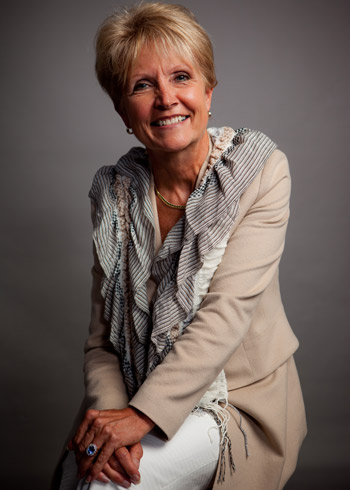-
I recall in my early days at ANZ I returned late one day from an interstate trip. My fellow travellers included a very senior management board executive, his wife and another female ANZ employee who, like me, was a working mother with young children.
"The discussion around female diversity in the workforce remains incomplete."
Alison Larsson, CRO Global Technology, Services and Operations at ANZ
As the executive kindly organised refreshments we were questioned by his wife. After learning that we both had young children she made her view very clear to us that continuing to work was totally unacceptable and that it was our responsibility to care for our children.
A mother who delegates the care of her children to grandparents or, worse still, strangers at a crèche, was marked as uncaring and abandoning her primary duty in the family.
My children are now grown but I still take a great interest in the issues facing working women with young families.
Society now accepts the right of women to work and build a career while raising a family. Employers have shown great commitment through implementing initiatives to support working mothers, ensuring female candidates are considered for roles and providing flexible working arrangements (and it's pleasing to see more men participating in these).
But the discussion around female diversity in the workforce remains incomplete.
How is it that we seem to have failed to identify, let alone articulate, one of the most obvious causes for under participation of women in senior ranks in Australia?
NOT GETTING EASIER
Our society does not expect, nor particularly encourage equal parenting. Until husbands, fathers and partners tangibly demonstrate their shared responsibility in all things to do with raising children, it will not get any easier.
Women will continue to leave the workforce rather than try to deal with the pressures of work as well as carry the major responsibility for looking after children.
It's known that higher female-participation rates in senior positions in Asia are largely attributable to the availability of affordable, full-time child care.
That the same level of affordability is not available in Australia does not mean we have exhausted alternative options to provide working mothers with greater support. The issue is much broader than affordable child care.
Raising children and running a household should not be the sole province of women. Historically, it is true that men were responsible for being the primary breadwinner and women worked in the home or in a lower regarded position. Surely this is now a barely recognisable meme for the 21st century.
We can all identify many men who are genuinely loving and involved in caring for their children. But it is too often not on an equal basis.
Men need to be asking themselves questions about whether or not they're pulling the same weight at home with a working partner, and working together to do the drop offs and pickups from child care, preparing meals, getting the kids ready for bed and putting a load of washing on.
I believe there is a lack of awareness or even a failure to acknowledge the amount of work that is being done at home and so conversations and discussions about this need to take place.
The challenge for employers is how do they foster the need for that dialogue?
THE SHADOW WE CAST
The groups “Chief Executive Women” and “Male Champions of Change” put it well: If we want our leadership to make a difference, we must understand our own impact — the shadow we cast.
We can start by asking men the same questions as women. As a recent Fortune article pointed out, the media can make big in roads in societal acceptance by resisting the urge to lead every interview with a senior female executive with: “how do you balance it all?” Ask the same question of men or don't ask it at all.
We recognise the value of home-based roles and part-time roles, and that success isn't necessarily about position and pay. But what about those women who do aspire to a full time career?
Leaders need to act as role models for an inclusive culture and expect inclusive leadership from all of us.
Let's enable, support and encourage more gender-balanced behaviour from our male colleagues with working partners and young families.
I'm interested to hear your thoughts in the comments section below or on social media.
Alison Larsson is CRO Global Technology, Services and Operations at ANZ.
The views and opinions expressed in this communication are those of the author and may not necessarily state or reflect those of ANZ.
EDITOR'S PICKS
-
Earlier this year I was fortunate enough to present Serena Williams the winner’s cheque after she won the Australian Open final for a sixth time. What made it particularly satisfying was that the cheque was for the same amount as Novak Djokovic’s the next evening.
29 July 2015 -
One of the most delicate challenges for female employees and all managers is pregnancy and maternity leave. Sadly it has become a taboo topic women feel they can't be open about and one many managers are afraid to raise with employees.
31 July 2015 -
Acceptable wisdom seems to be that for women to be taken seriously as business leaders they should only speak on business issues and studiously avoid addressing the so called work-life balance or the challenges of juggling a career and a family.
5 August 2015
